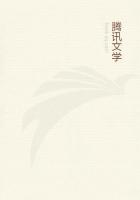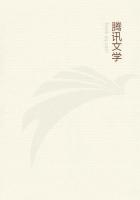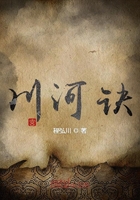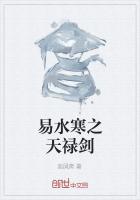Her return was anxiously expected; for, if the truth must be told, they were very hungry.So rigorous was the economy in this decayed but honorable house that the wax candles burned to-day in the oratory had scrimped their dinner, unsubstantial as it was wont to be.Think of that, you in fustian jackets who grumble after meat.
The door opened, Jacintha reappeared in the light of her candle a moment with a tray in both hands, and, approaching, was lost to view; but a strange and fragrant smell heralded her.All their eyes turned with curiosity towards the unwonted odor, and Jacintha dawned with three roast partridges on a dish.
They were wonder-struck, and looked from the birds to her in mute surprise, that was not diminished by a certain cynical indifference she put on.She avoided their eyes, and forcibly excluded from her face everything that could imply she did not serve up partridges to this family every night of her life.
"The supper is served, madame," said she, with a respectful courtesy and a mechanical tone, and, plunging into the night, swam out at her own candle, shut the door, and, unlocking her face that moment, burst out radiant, and so to the kitchen, and, with a tear in her eye, set-to and polished all the copper stewpans with a vigor and expedition unknown to the new-fangled domestic.
"Partridges, mamma! What next?"
"Pheasants, I hope," cried the doctor, gayly."And after them hares; to conclude with royal venison.Permit me, ladies." And he set himself to carve with zeal.
Now nature is nature, and two pair of violet eyes brightened and dwelt on the fragrant and delicate food with demure desire; for all that, when Aubertin offered Josephine a wing, she declined it."No partridge?" cried the savant, in utter amazement.
"Not to-day, dear friend; it is not a feast day to-day.""Ah! no; what was I thinking of?"
"But you are not to be deprived," put in Josephine, anxiously."We will not deny ourselves the pleasure of seeing you eat some.""What!" remonstrated Aubertin, "am I not one of you?"The baroness had attended to every word of this.She rose from her chair, and said quietly, "Both you and he and Rose will be so good as to let me see you eat.""But, mamma," remonstrated Josephine and Rose in one breath.
"Je le veux," was the cold reply.
These were words the baroness uttered so seldom that they were little likely to be disputed.
The doctor carved and helped the young ladies and himself.
When they had all eaten a little, a discussion was observed to be going on between Rose and her sister.At last Aubertin caught these words, "It will be in vain; even you have not influence enough for that, Rose.""We shall see," was the reply, and Rose put the wing of a partridge on a plate and rose calmly from her chair.She took the plate and put it on a little work-table by her mother's side.The others pretended to be all mouths, but they were all ears.The baroness looked in Rose's face with an air of wonder that was not very encouraging.Then, as Rose said nothing, she raised her aristocratic hand with a courteous but decided gesture of refusal.
Undaunted Rose laid her palm softly on the baroness's shoulder, and said to her as firmly as the baroness herself had just spoken,--"Il le veut."
The baroness was staggered.Then she looked with moist eyes at the fair young face, then she reflected.At last she said, with an exquisite mixture of politeness and affection, "It is his daughter who has told me 'Il le veut.' I obey."Rose returning like a victorious knight from the lists, saucily exultant, and with only one wet eyelash, was solemnly kissed and petted by Josephine and the doctor.
Thus they loved one another in this great, old, falling house.
Their familiarity had no coarse side; a form, not of custom but affection, it went hand-in-hand with courtesy by day and night.
The love of the daughters for their mother had all the tenderness, subtlety, and unselfishness of womanly natures, together with a certain characteristic of the female character.And whither that one defect led them, and by what gradations, it may be worth the reader's while to observe.
The baroness retired to rest early; and she was no sooner gone than Josephine leaned over to Rose, and told her what their mother had said to the oak-tree.Rose heard this with anxiety; hitherto they had carefully concealed from their mother that the government claimed the right of selling the chateau to pay the creditors, etc.;and now both sisters feared the old lady had discovered it somehow, or why that strange thing she had said to the oak-tree? But Dr.
Aubertin caught their remarks, and laid down his immortal MS.on French insects, to express his hope that they were putting a forced interpretation on the baroness's words.
"I think," said he, "she merely meant how short-lived are we all compared with this ancient oak.I should be very sorry to adopt the other interpretation; for if she knows she can at any moment be expelled from Beaurepaire, it will be almost as bad for her as the calamity itself; THAT, I think, would kill her.""Why so?" said Rose, eagerly."What is this house or that? Mamma will still have her daughters' love, go where she will."Aubertin replied, "It is idle to deceive ourselves; at her age men and women hang to life by their habits; take her away from her chateau, from the little oratory where she prays every day for the departed, from her place in the sun on the south terrace, and from all the memories that surround her here; she would soon pine, and die."Here the savant seeing a hobby-horse near, caught him and jumped on.















